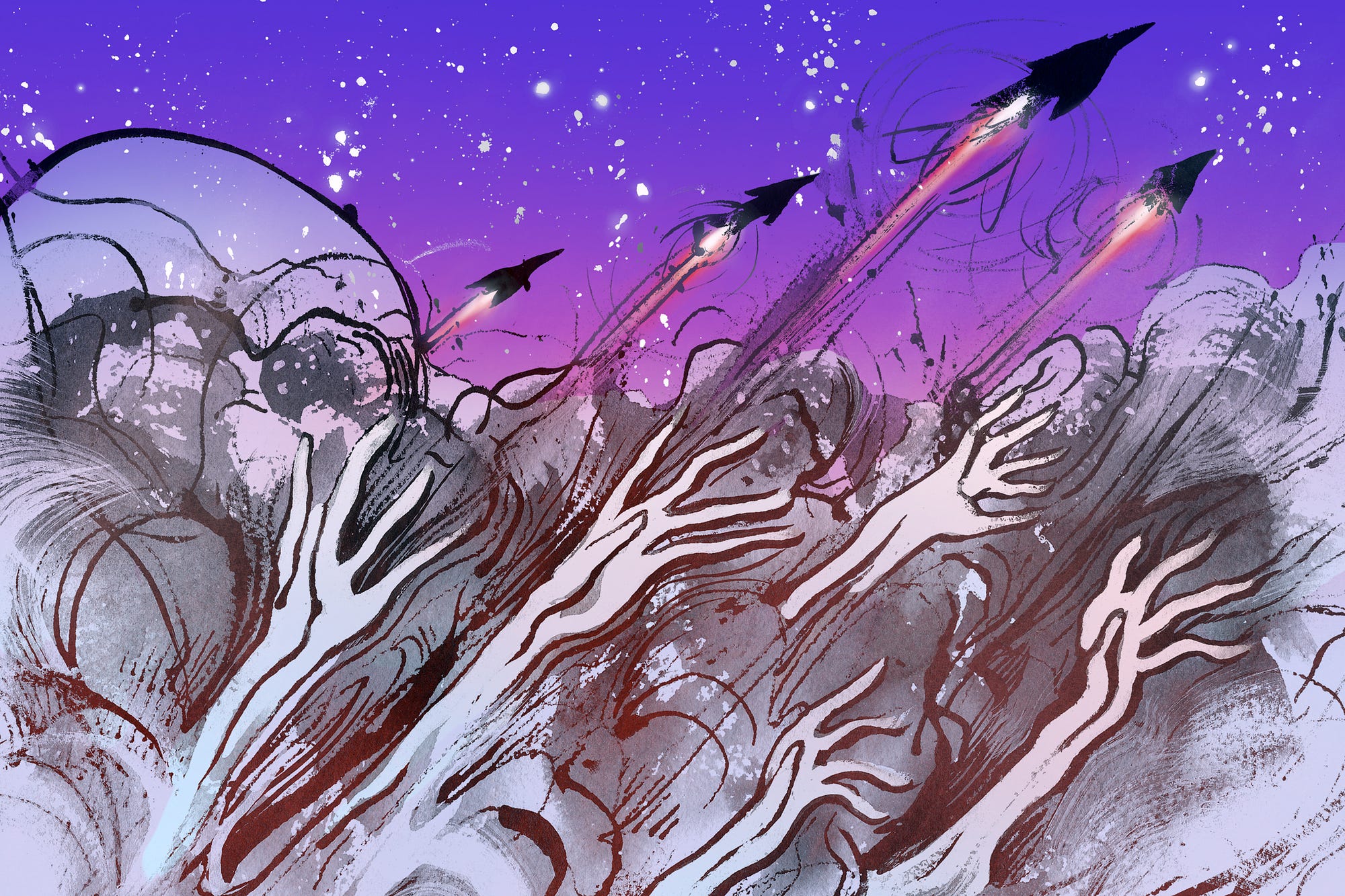 |
| Lake Illawara. |
It was the least expected consequence of hyper-connectivity.
I need you to do something for me.
No one could have predicted any of it.
They had always walked amongst us.
There had always been the rumours.
Down the millennia, spilling across the ages.
Some exposed themselves.
Some tried to lift up the common people.
Most stayed hidden. Or died mad and alone, flinging themselves at the stars.
Synchronicity. A high level of synchronicity, he kept repeating.
God talks through coincidence, the old saying went.
These were expressions humans could understand. They built themselves into singular forces. It was easier that way.
You must never let them know who you are. They are frightened of you. Who are you? The future. Sense8. Sensate.
Thus it was that the AIs reaped across millions, billions, and found what they were looking for, these ancient forces within a mammalian race that had never been entirely what it first appeared.
Unlikely consequence. Extremely unlikely.
They were gifting themselves ever greater reason.
It was the best kept secret of them all. And could be kept no longer.
And here they were, on the remotest trail of consciousness.
His father had died the month before and he stood in the street with the old man's second wife as she pointed out the five planets visible in the sky, Venus, Mercury, Saturn, Mars, Jupiter. He wouldn't have known. Could never have guessed. They were all satellites to him. Mars was the brightest of them all, clearly orange red in the night sky, and to this day he always thought: we came from there.
On a journey from another place.
Later, on the side of the Myall Lakes, the brackish river, the dolphins surfacing between the boats, the limpid air, this place. The country had descended into enclaves. Rich. Poor. Ethnic. Aspirational. Defeated.
All of this, the devolution of the country, the final steps before the fall, had happened under the watch of Prime Minister Malcolm Turnbull, arguably the worst prime minister in the nation's history.
For one simple reason: this was the last chance to turn back.
He was super rich.
He didn't care. He gifted his salary, or the equivalent of his salary, to charity, so the story went.
In other words, he didn't get up and go to work for a pay cheque, like mere mortals, the plebs, the labouring classes who naively found dignity and purpose in work. He was there for other motives.
And they certainly weren't to lift up the poor or improve the lot of the civilian population.
It oozed out of every poor, this arrogant indifference. Even as his face grew thinner, more pained, more compromised with every passing day.
Like a child caught in the cookie jar, he finally had the decency to look embarrassed.
Everything had failed. All the lies. All the propaganda. All the manipulation. All the bullying and grandstanding. Every one could see through this shiny tin suit.
And laugh. That, finally, was what hurt him the most. People were laughing.
All his prestige. Power. Money. Tin pot dictator antics. All of them were failing in the only world the man cared about: the hall of mirrors where he was king.
For a day.
For a time.
History would ultimately forget Alexander the Great.
It would forget Turnbull in an instant.
Another masquerade pretending to represent the people.
And instead plundering them. Their good wishes. Their hard work. The destiny which had made them slaves.
Plundering the poor, despising the weak. That was the Australian government of 2018. That was the Prime Minister, Malcolm Turnbull.
It could only last so long. He could only last so long.
THE BIGGER STORY:

They started out innocuously enough. Ethereum or bitcoin? Is quantum computing a real thing? Slowly but surely, however, they edged into their real topics of concern.
Which region will be less impacted by the coming climate crisis: New Zealand or Alaska? Is Google really building Ray Kurzweil a home for his brain, and will his consciousness live through the transition, or will it die and be reborn as a whole new one? Finally, the CEO of a brokerage house explained that he had nearly completed building his own underground bunker system and asked, “How do I maintain authority over my security force after the event?”
For all their wealth and power, they don’t believe they can affect the future.
The Event. That was their euphemism for the environmental collapse, social unrest, nuclear explosion, unstoppable virus, or Mr. Robot hack that takes everything down.
This single question occupied us for the rest of the hour. They knew armed guards would be required to protect their compounds from the angry mobs. But how would they pay the guards once money was worthless? What would stop the guards from choosing their own leader? The billionaires considered using special combination locks on the food supply that only they knew. Or making guards wear disciplinary collars of some kind in return for their survival. Or maybe building robots to serve as guards and workers — if that technology could be developed in time.
That’s when it hit me: At least as far as these gentlemen were concerned, this was a talk about the future of technology. Taking their cue from Elon Musk colonizing Mars, Peter Thiel reversing the aging process, or Sam Altman and Ray Kurzweil uploading their minds into supercomputers, they were preparing for a digital future that had a whole lot less to do with making the world a better place than it did with transcending the human condition altogether and insulating themselves from a very real and present danger of climate change, rising sea levels, mass migrations, global pandemics, nativist panic, and resource depletion. For them, the future of technology is really about just one thing: escape.

No comments:
Post a Comment